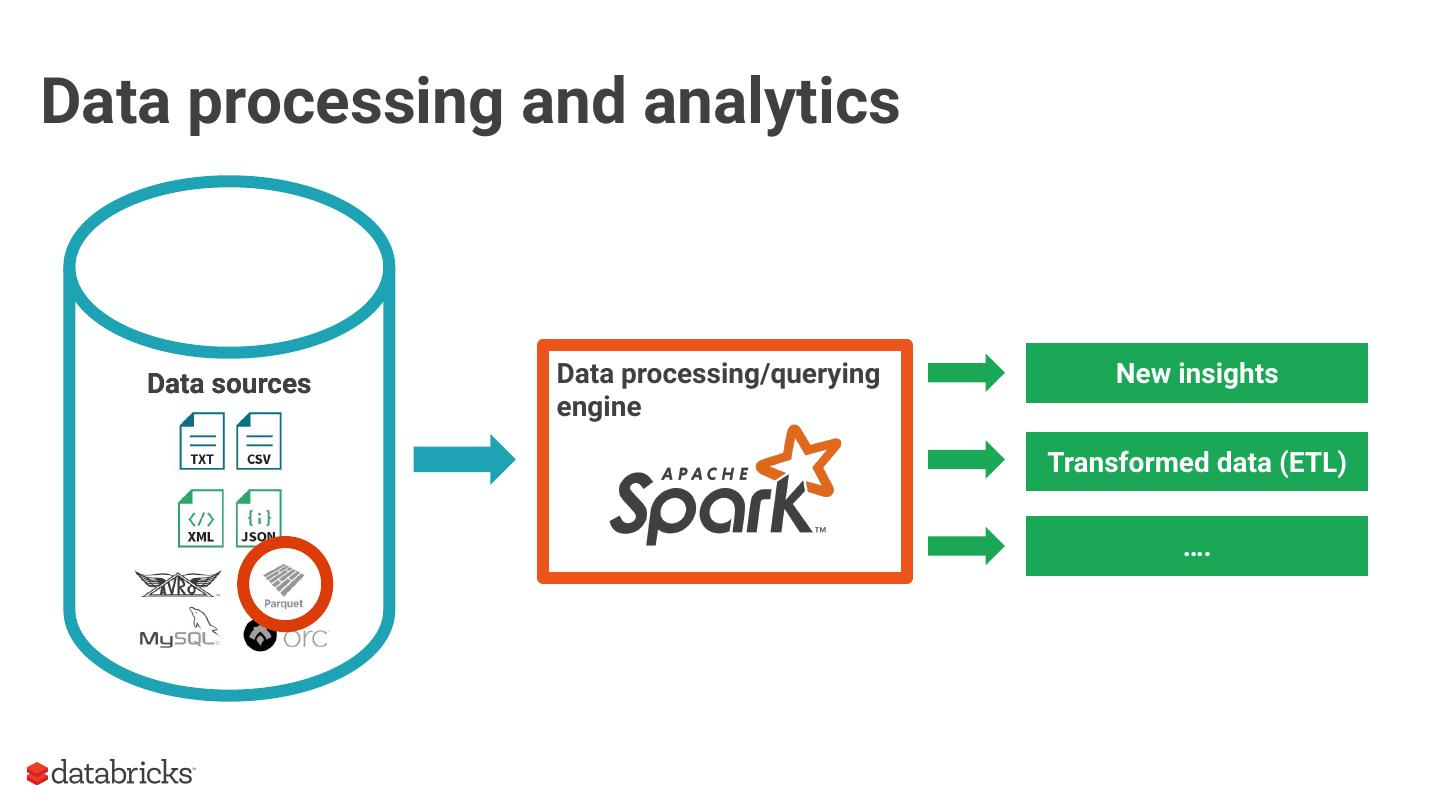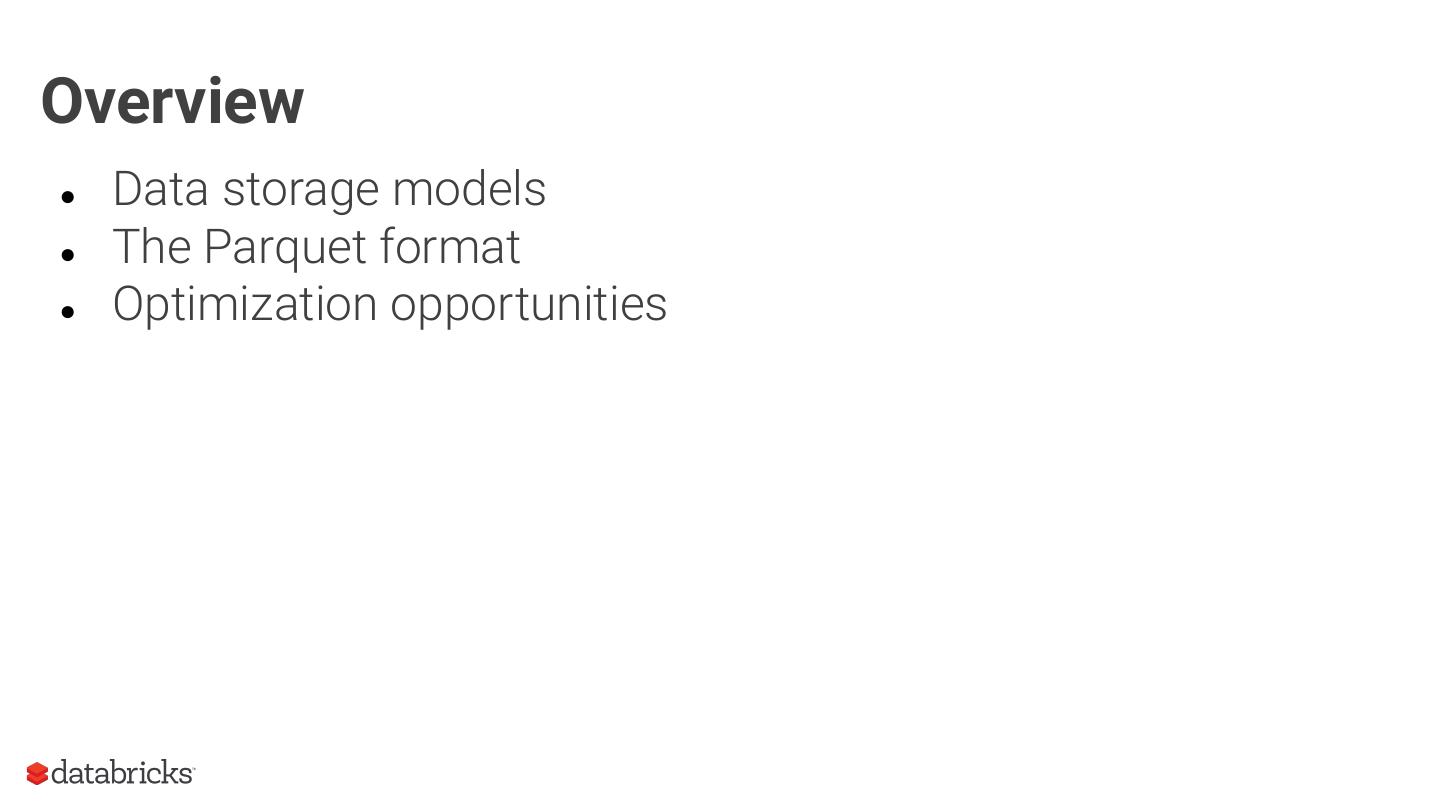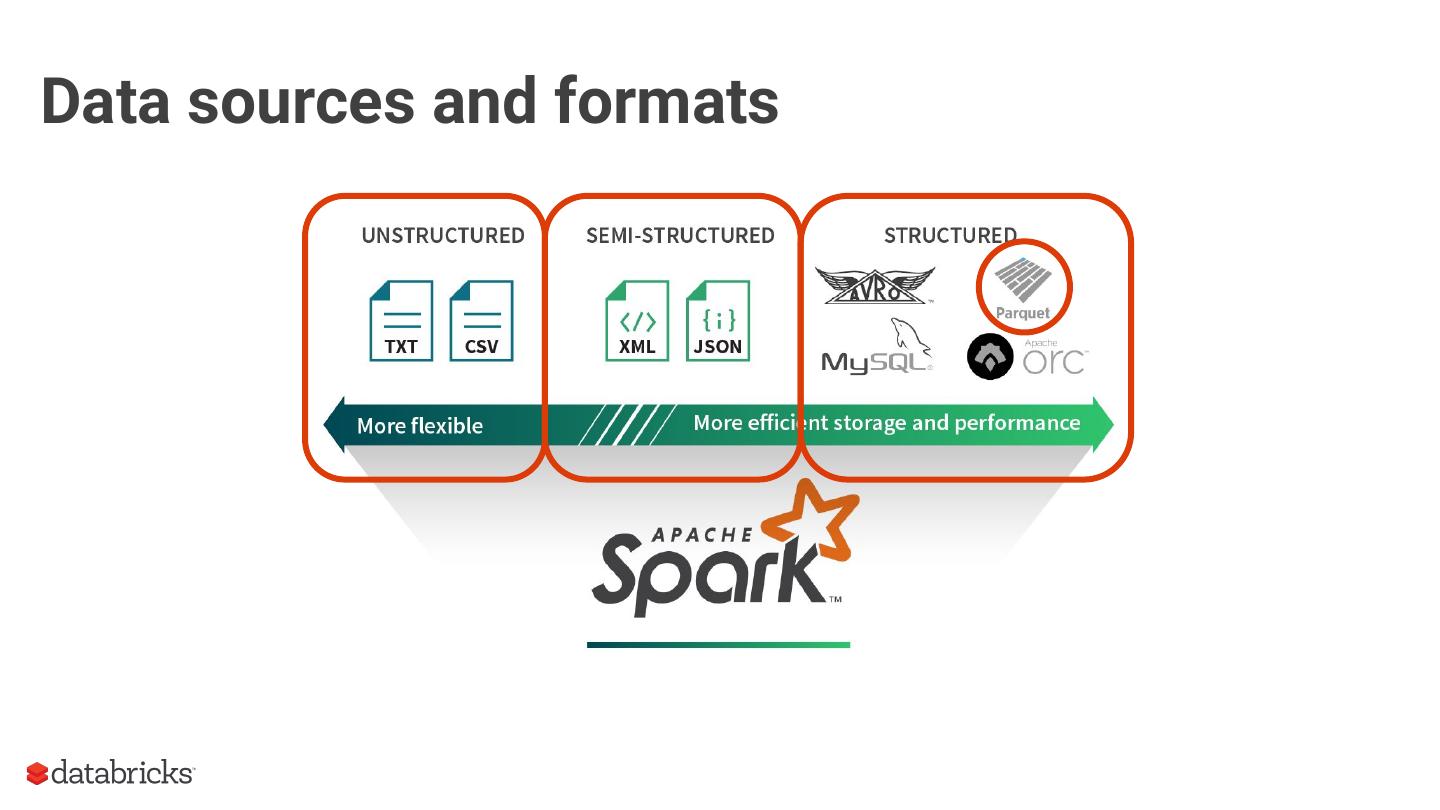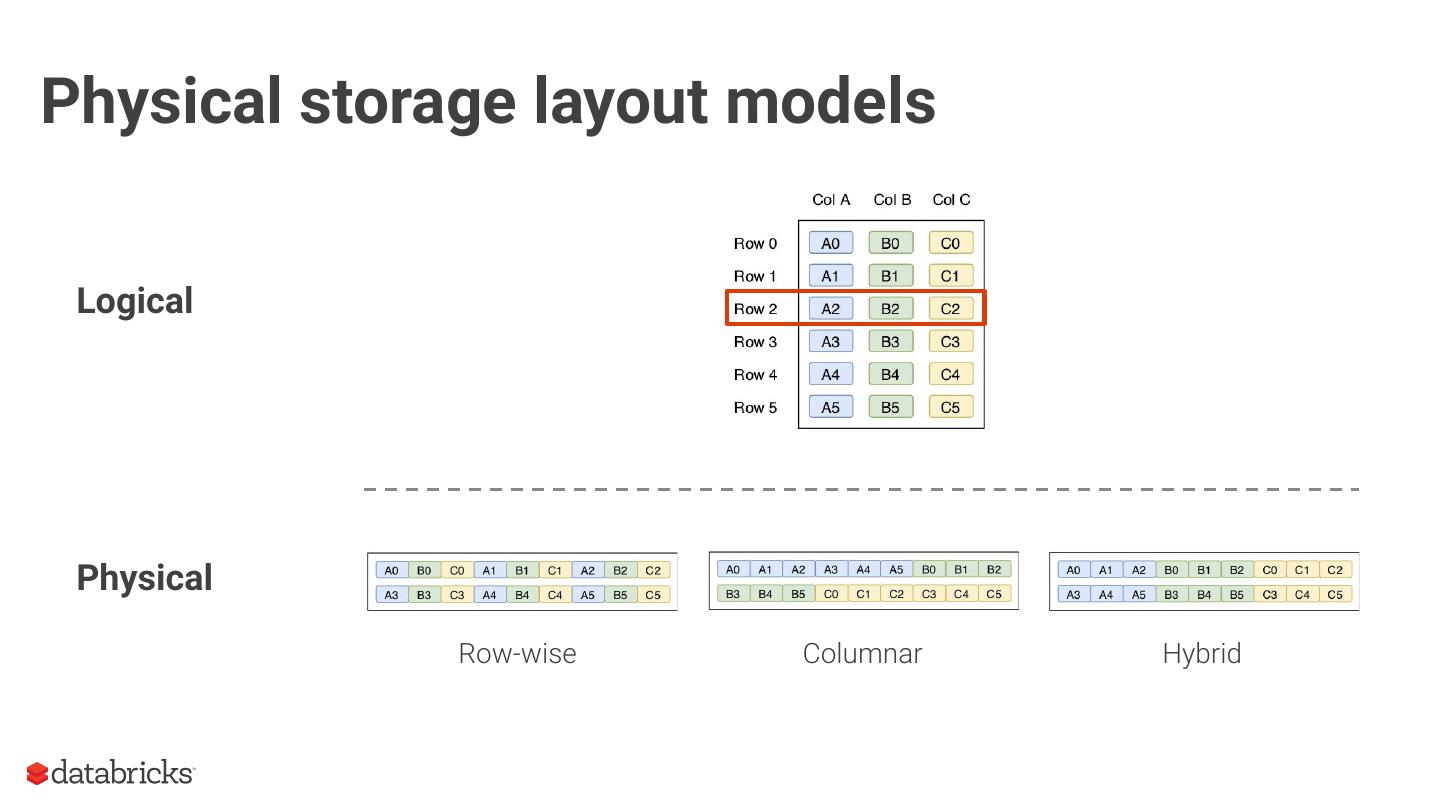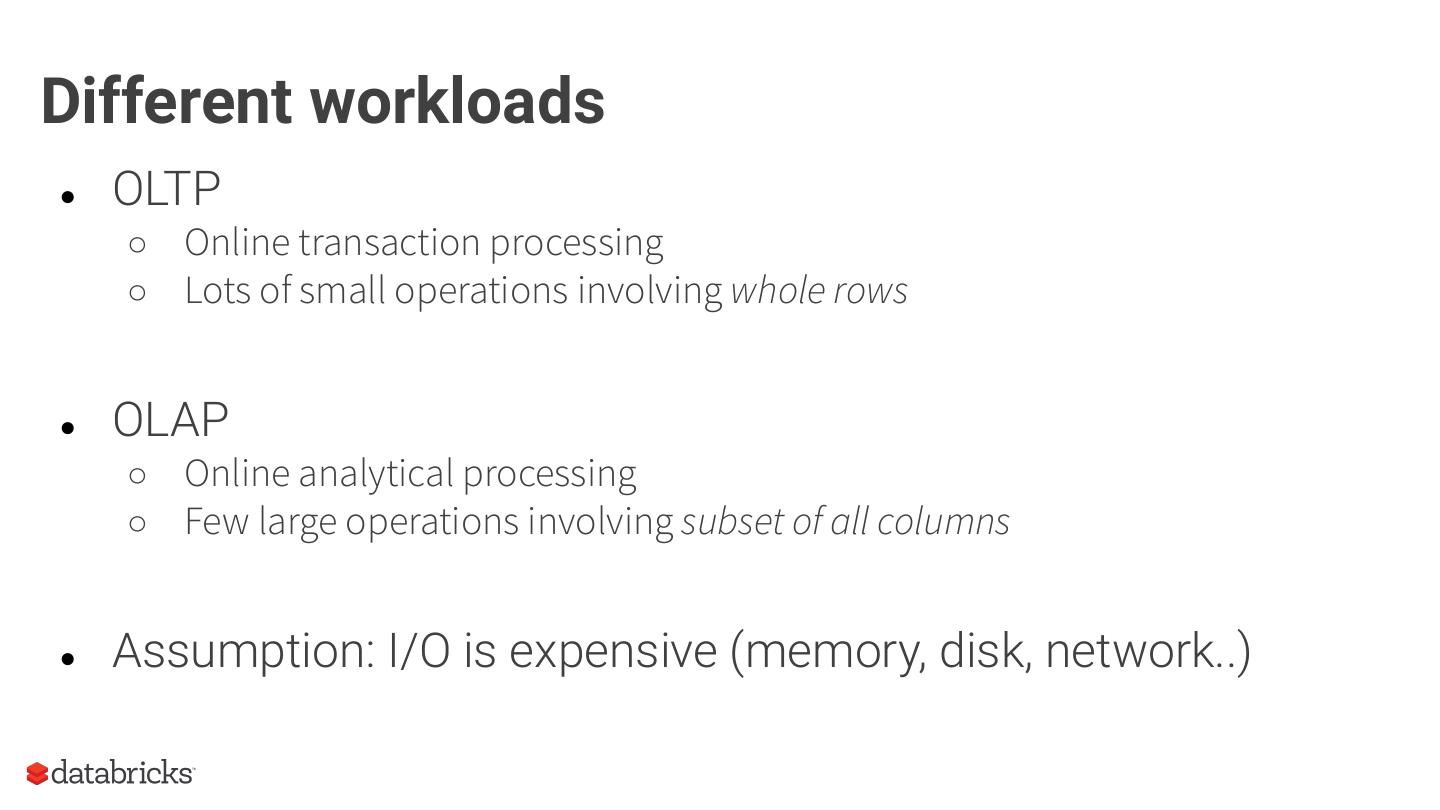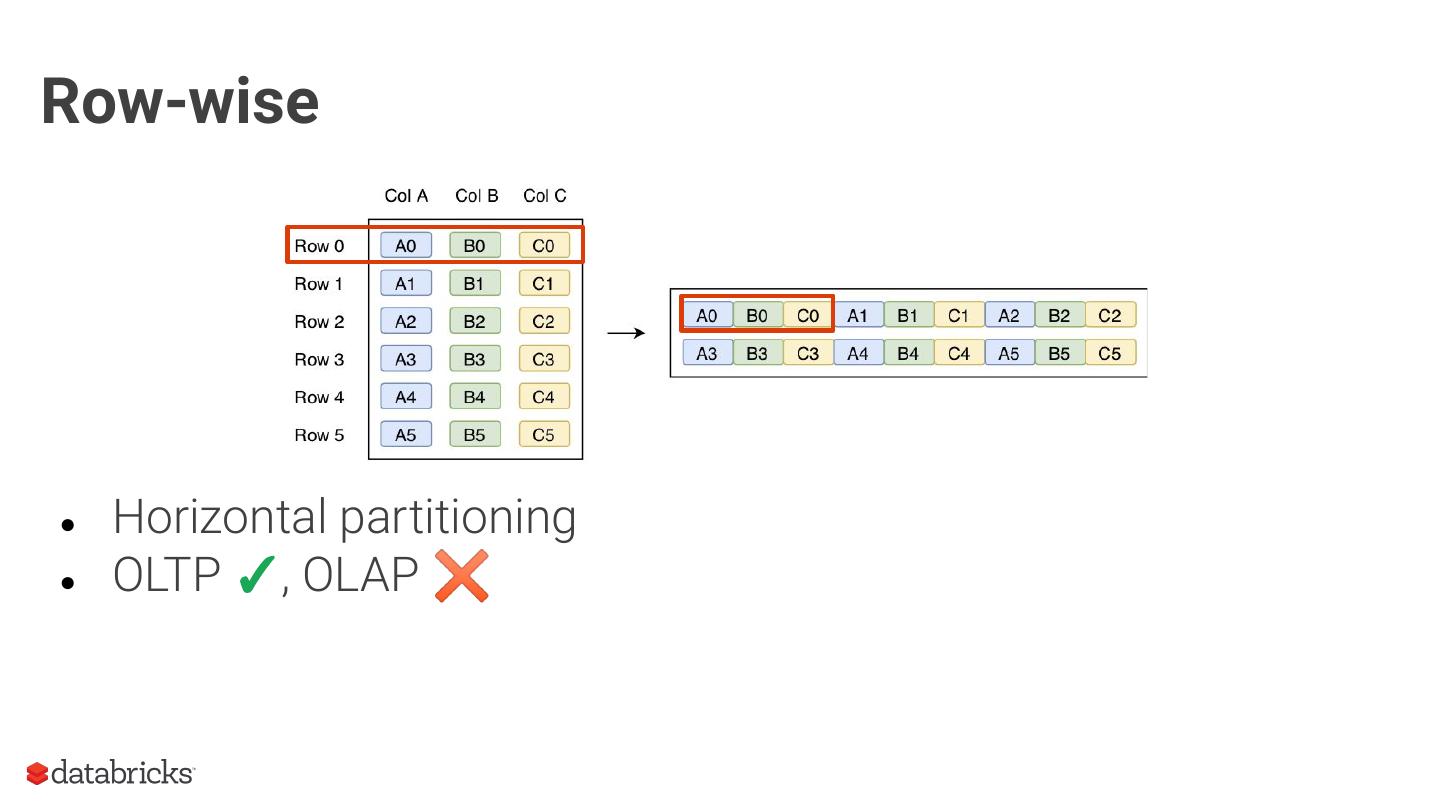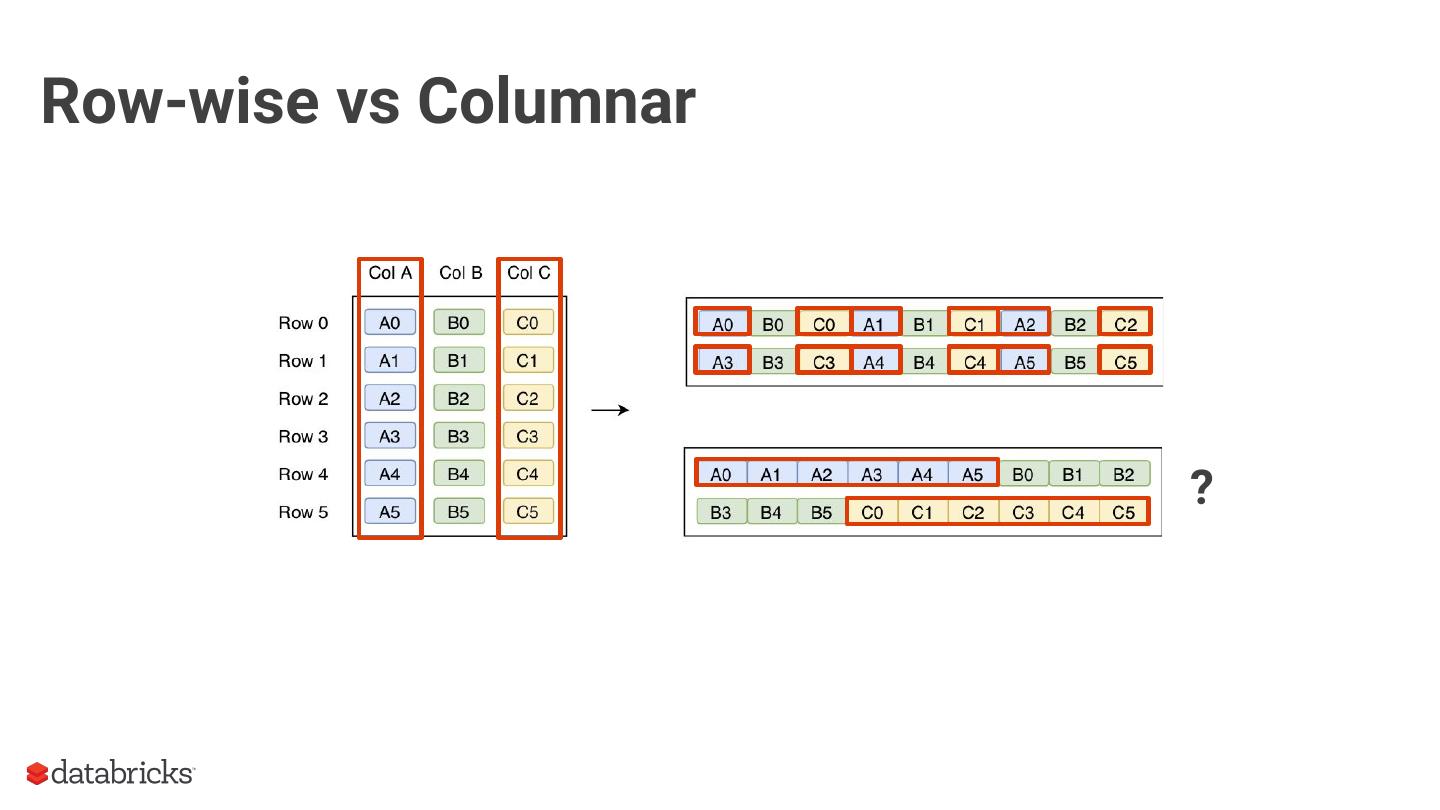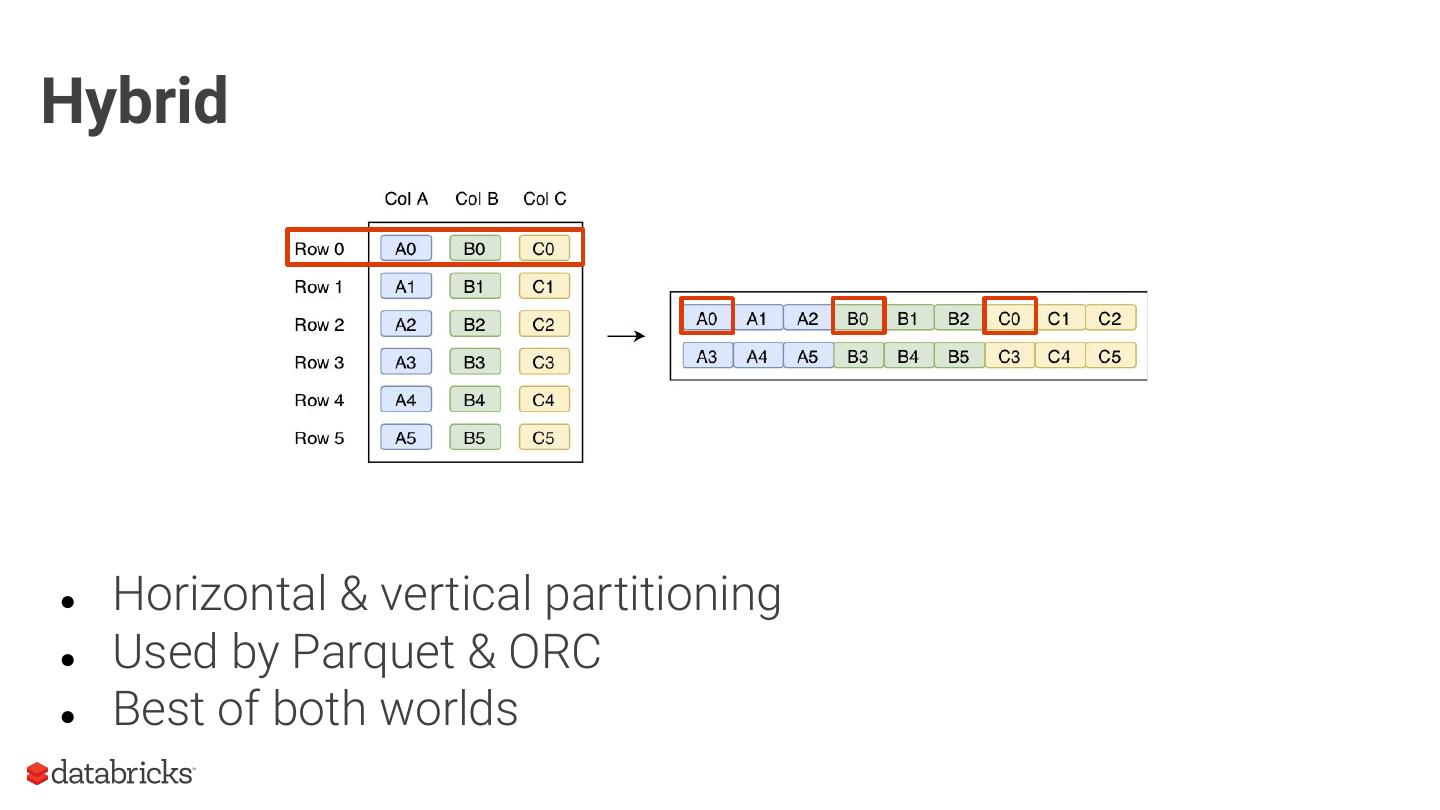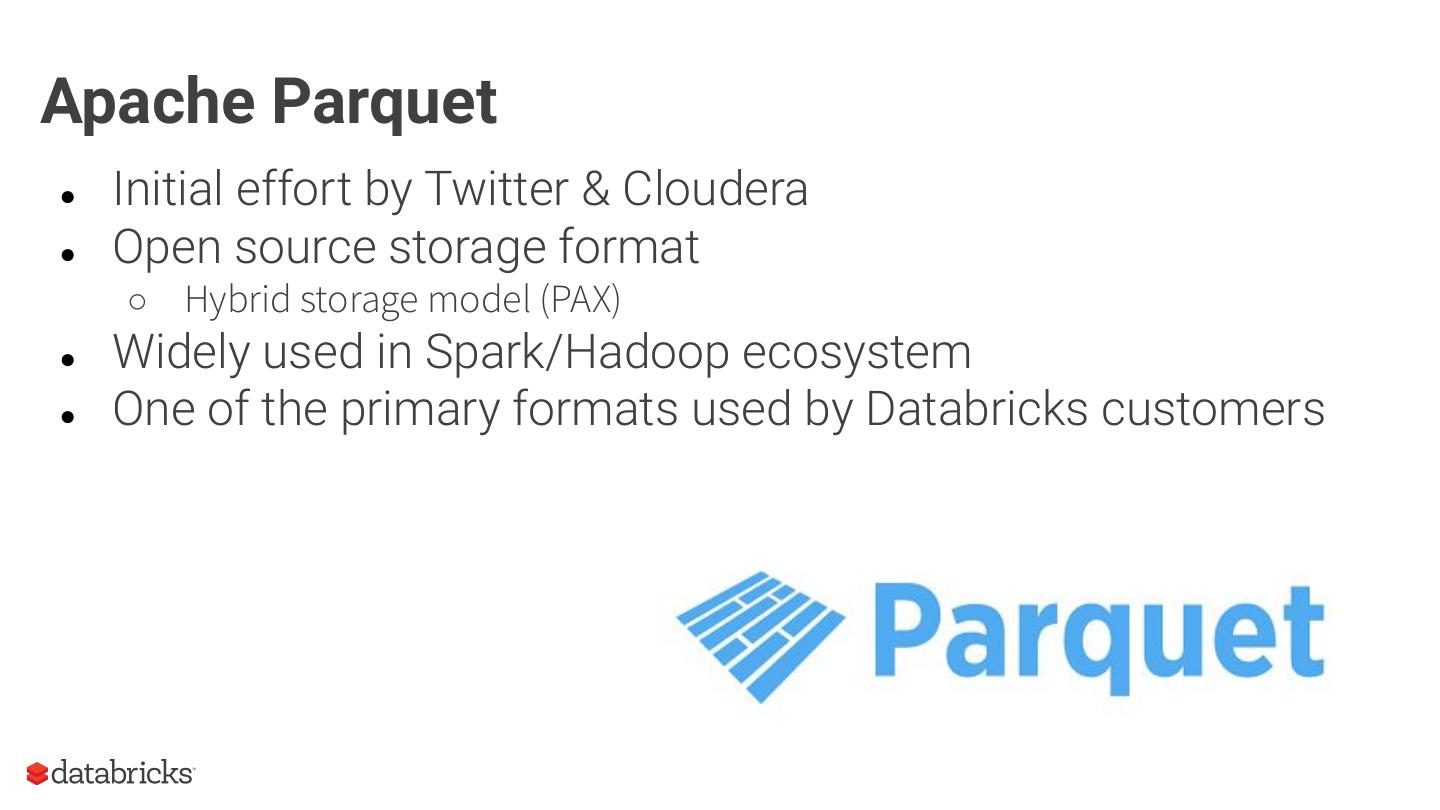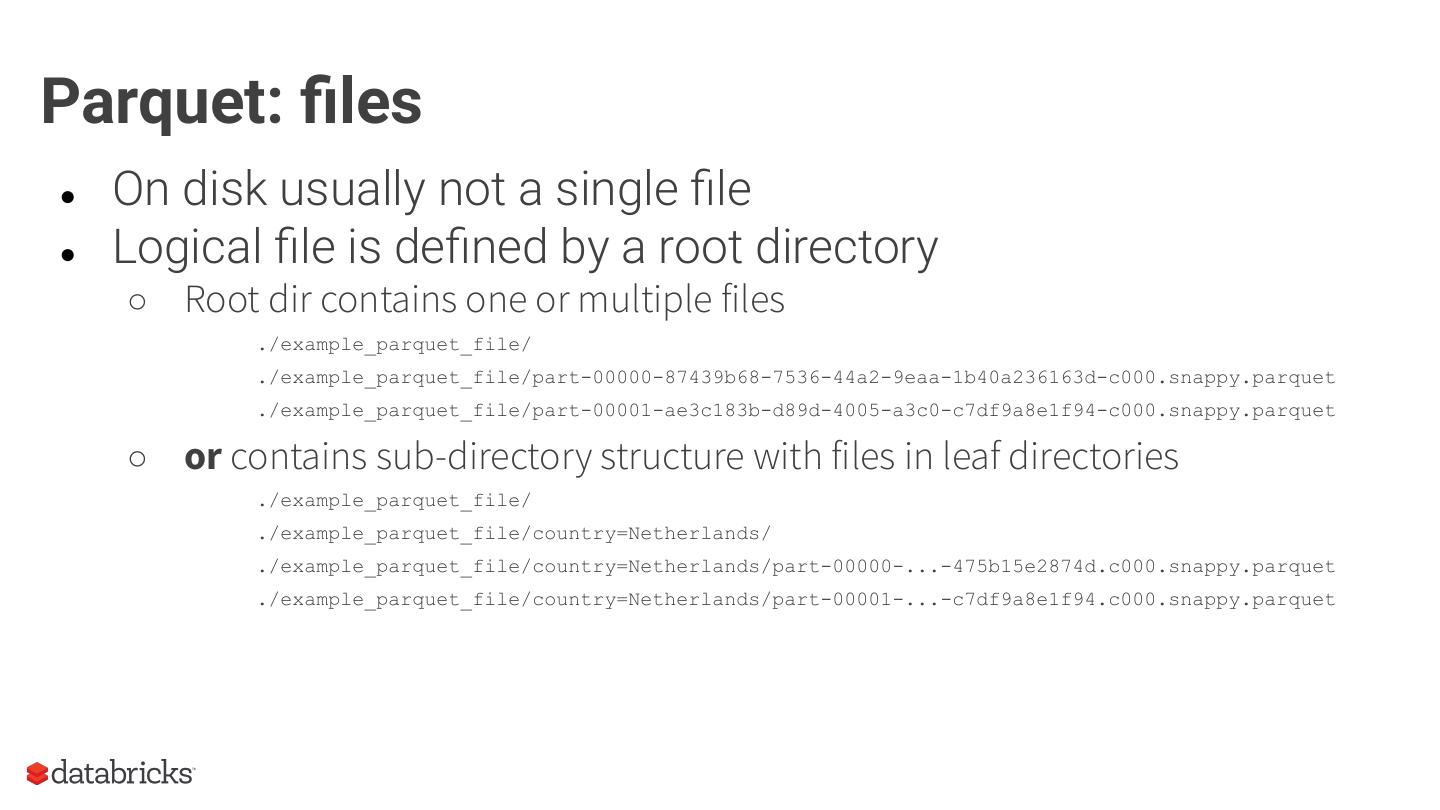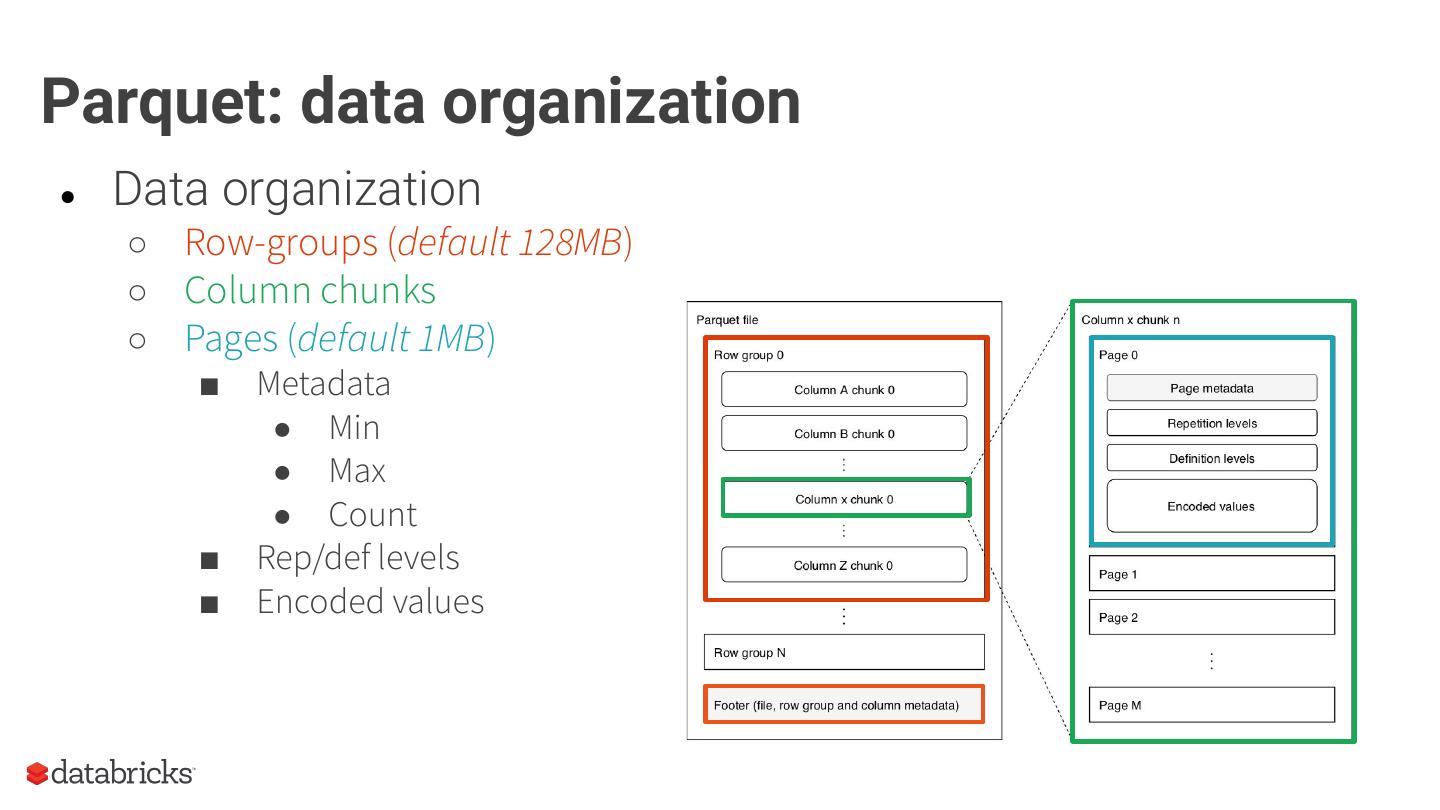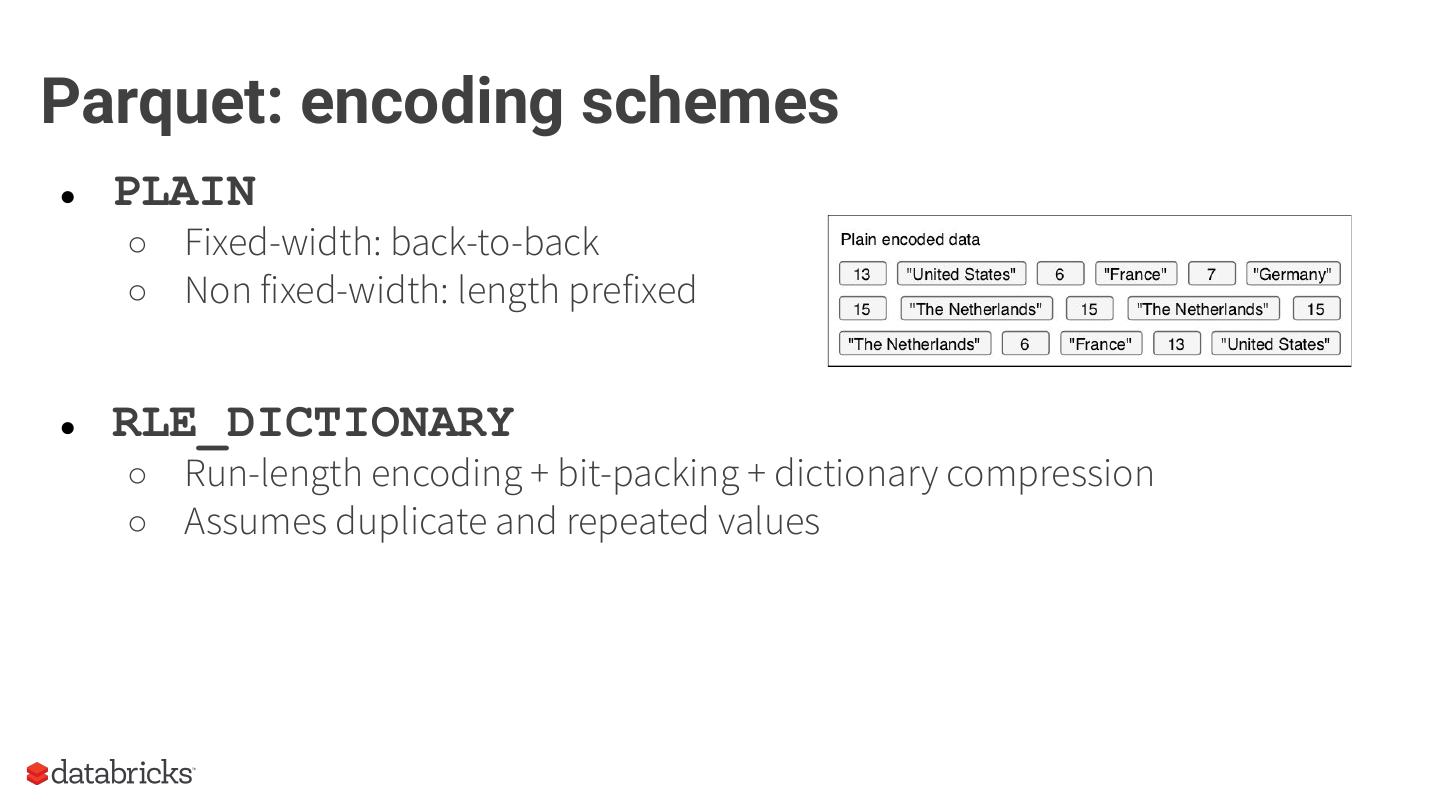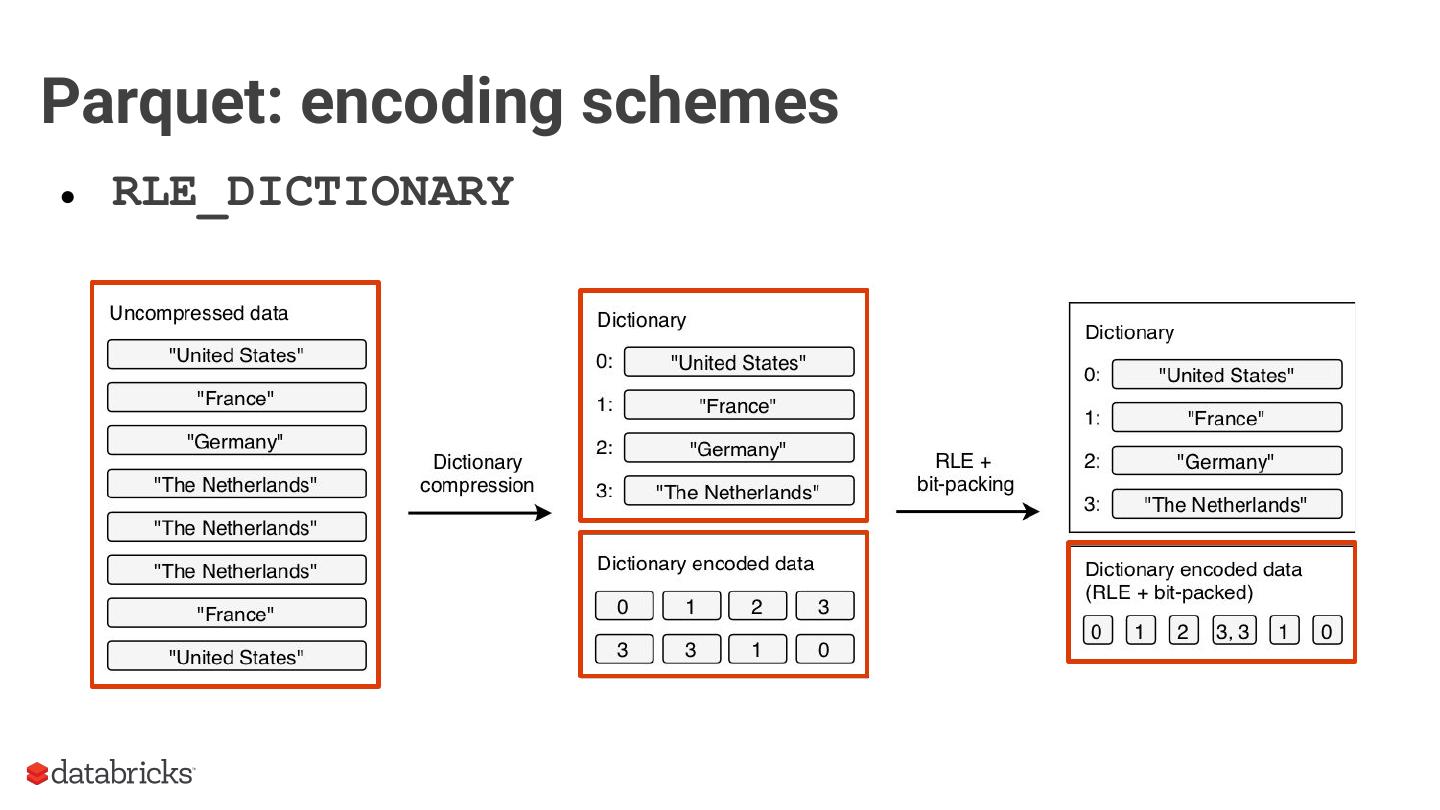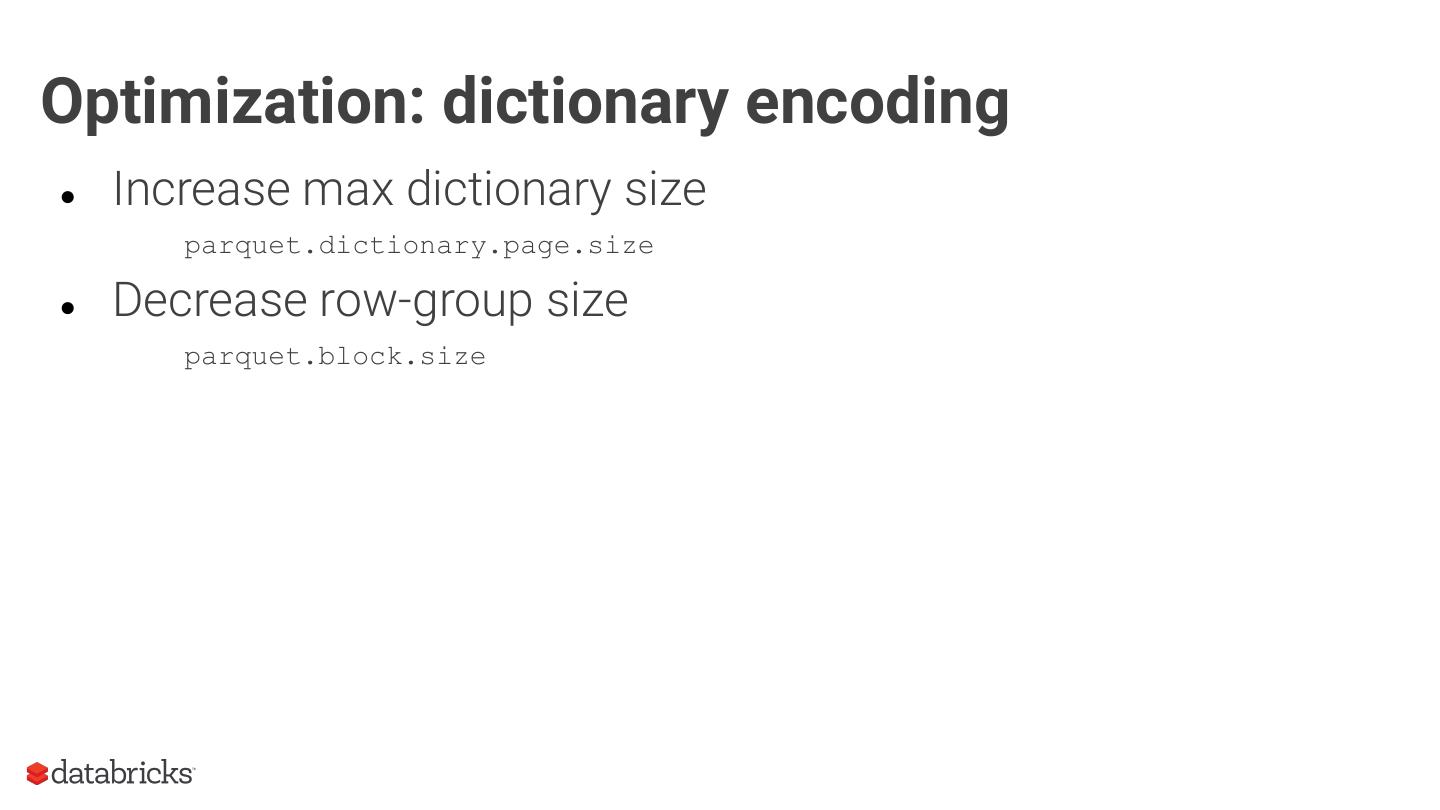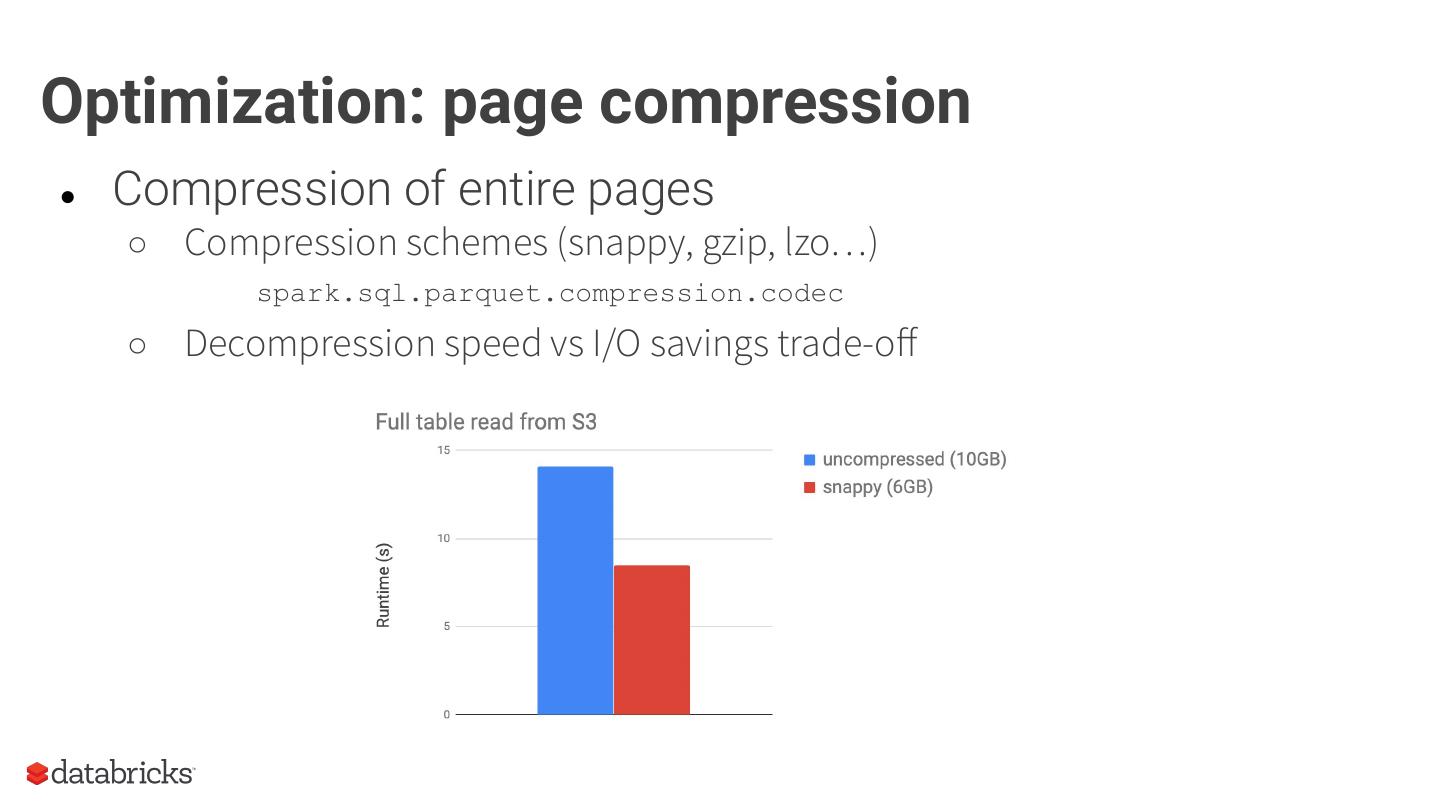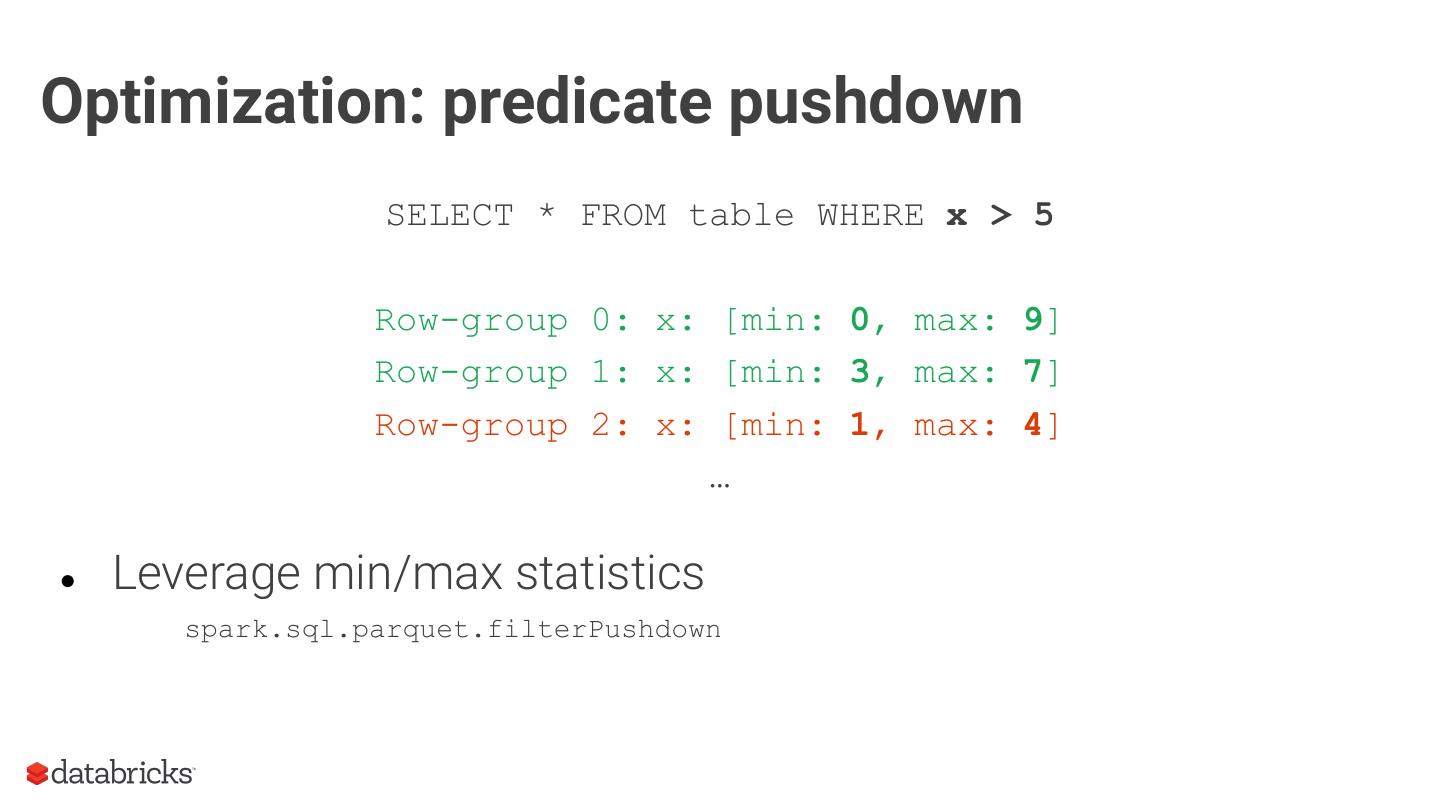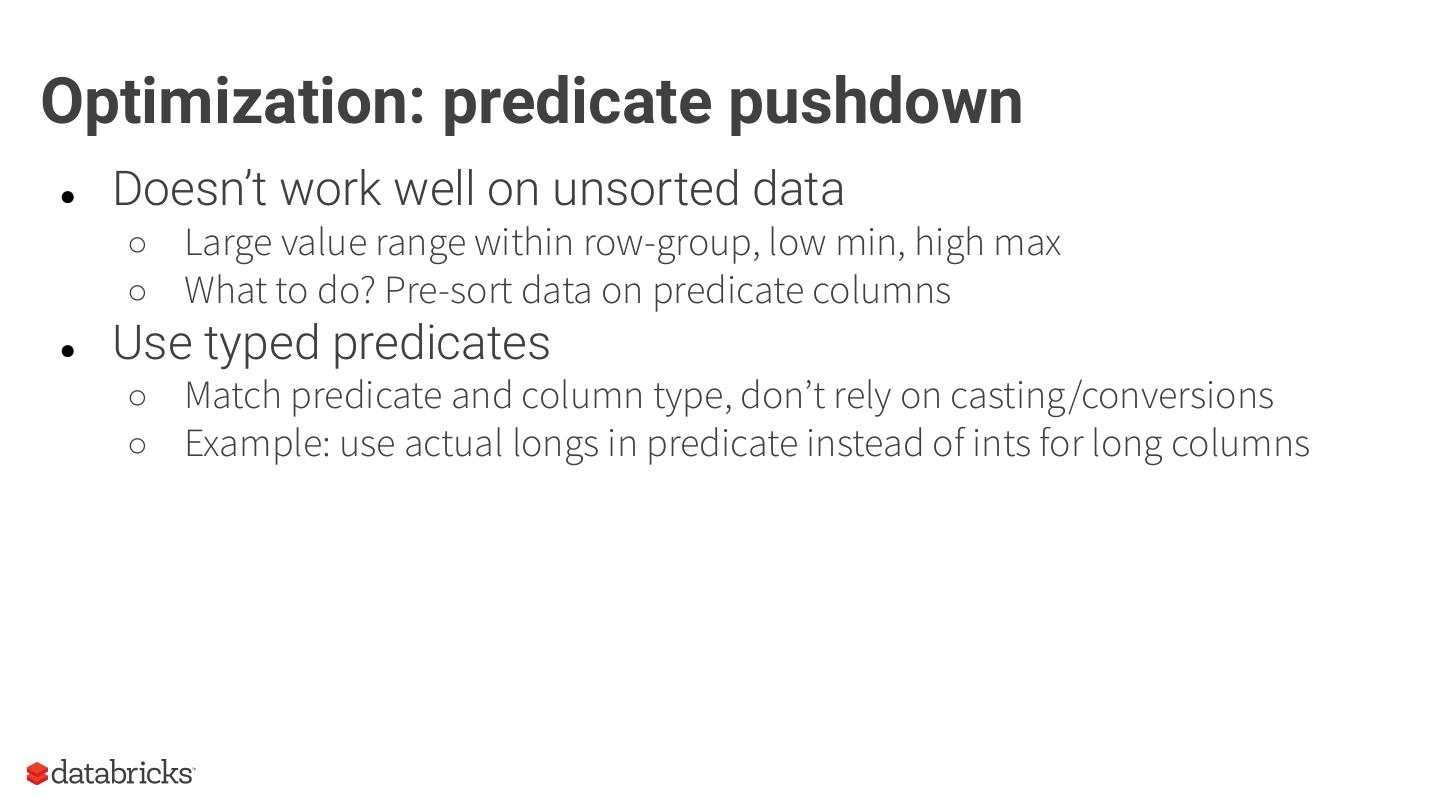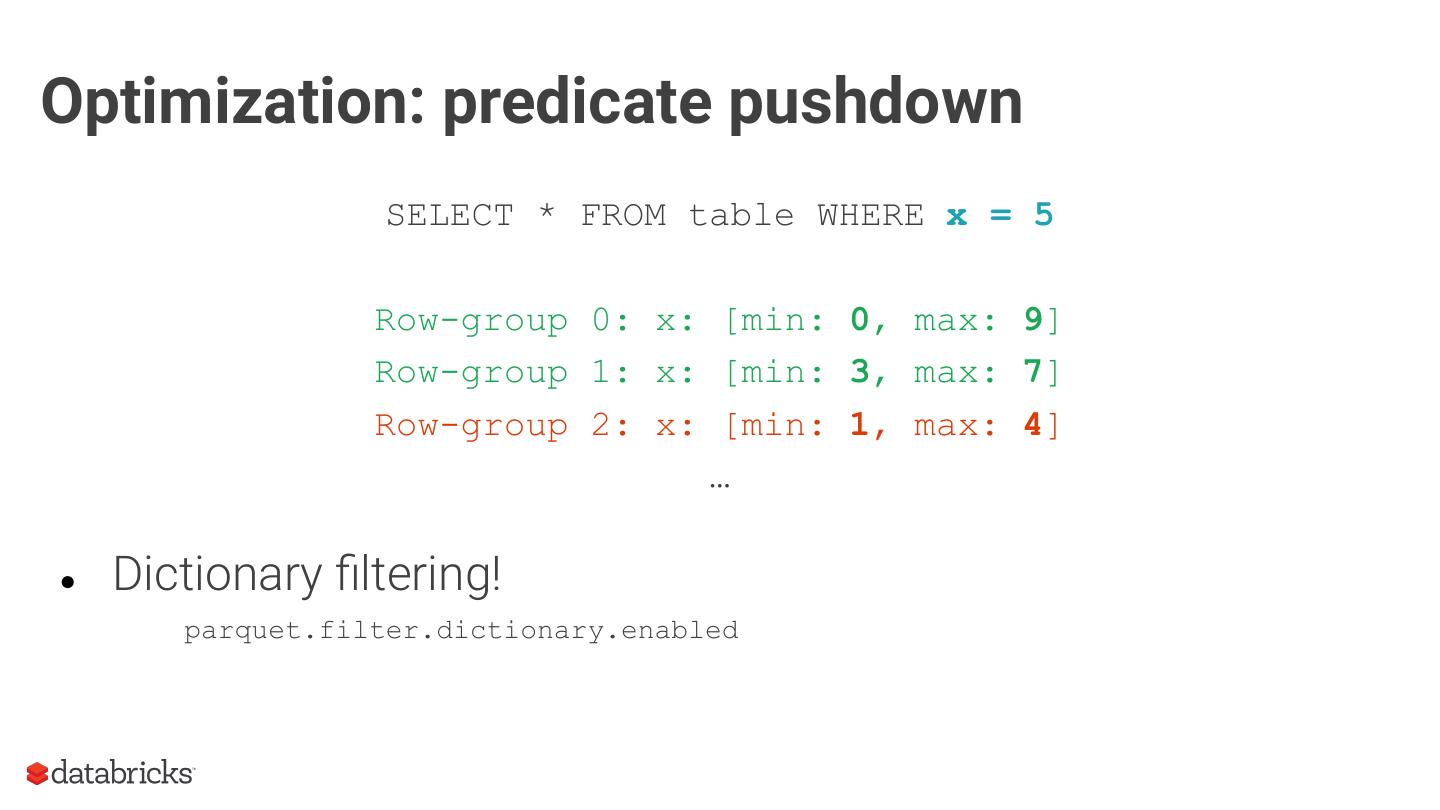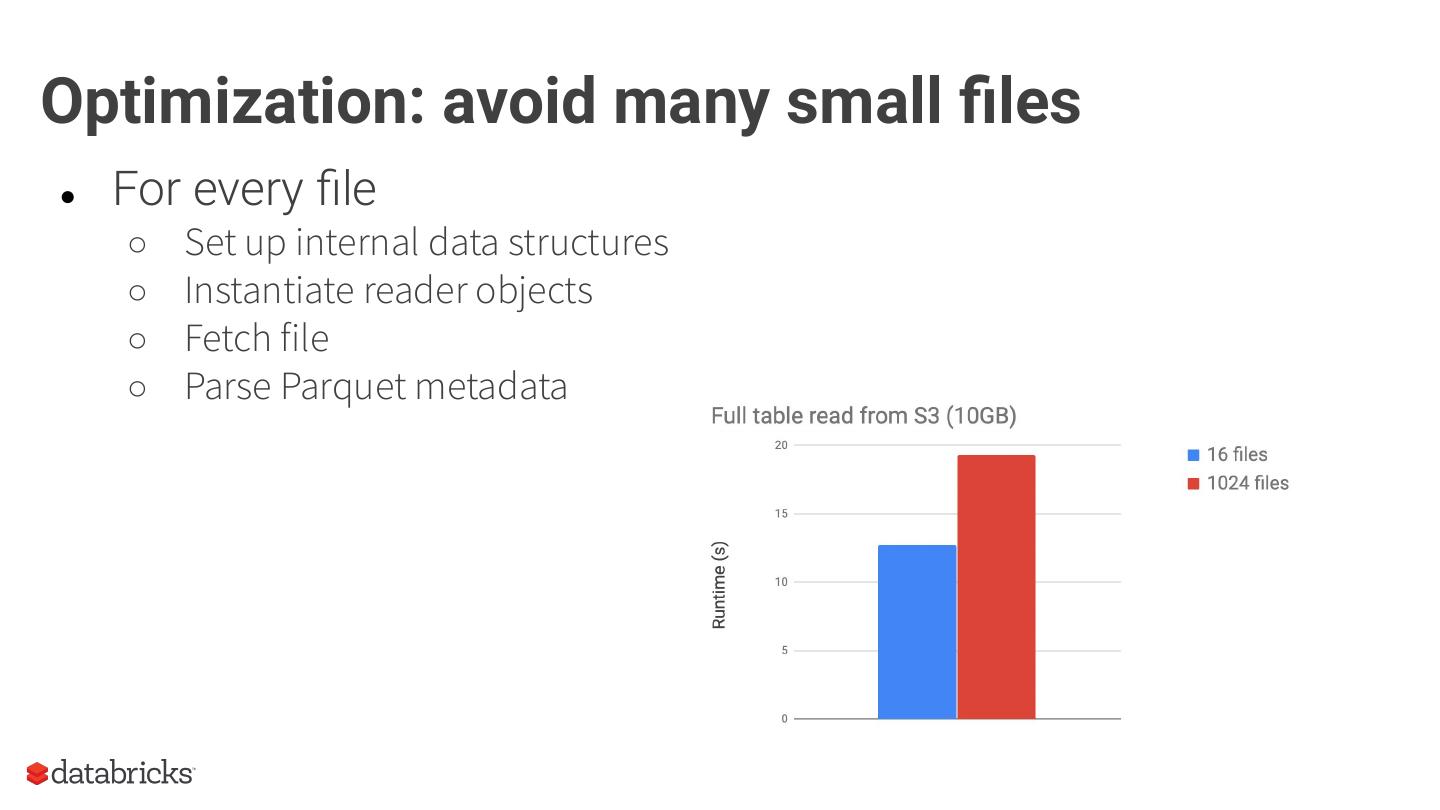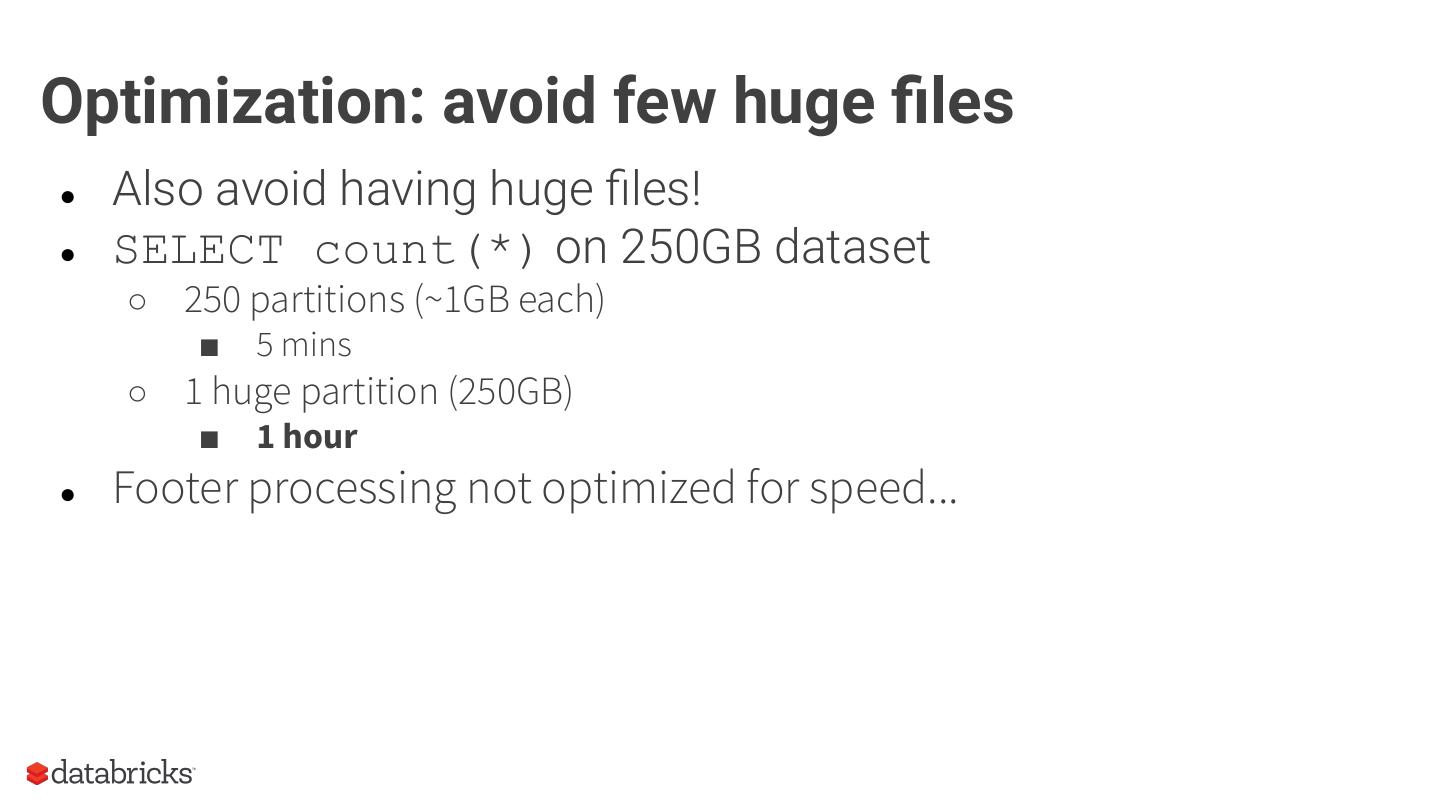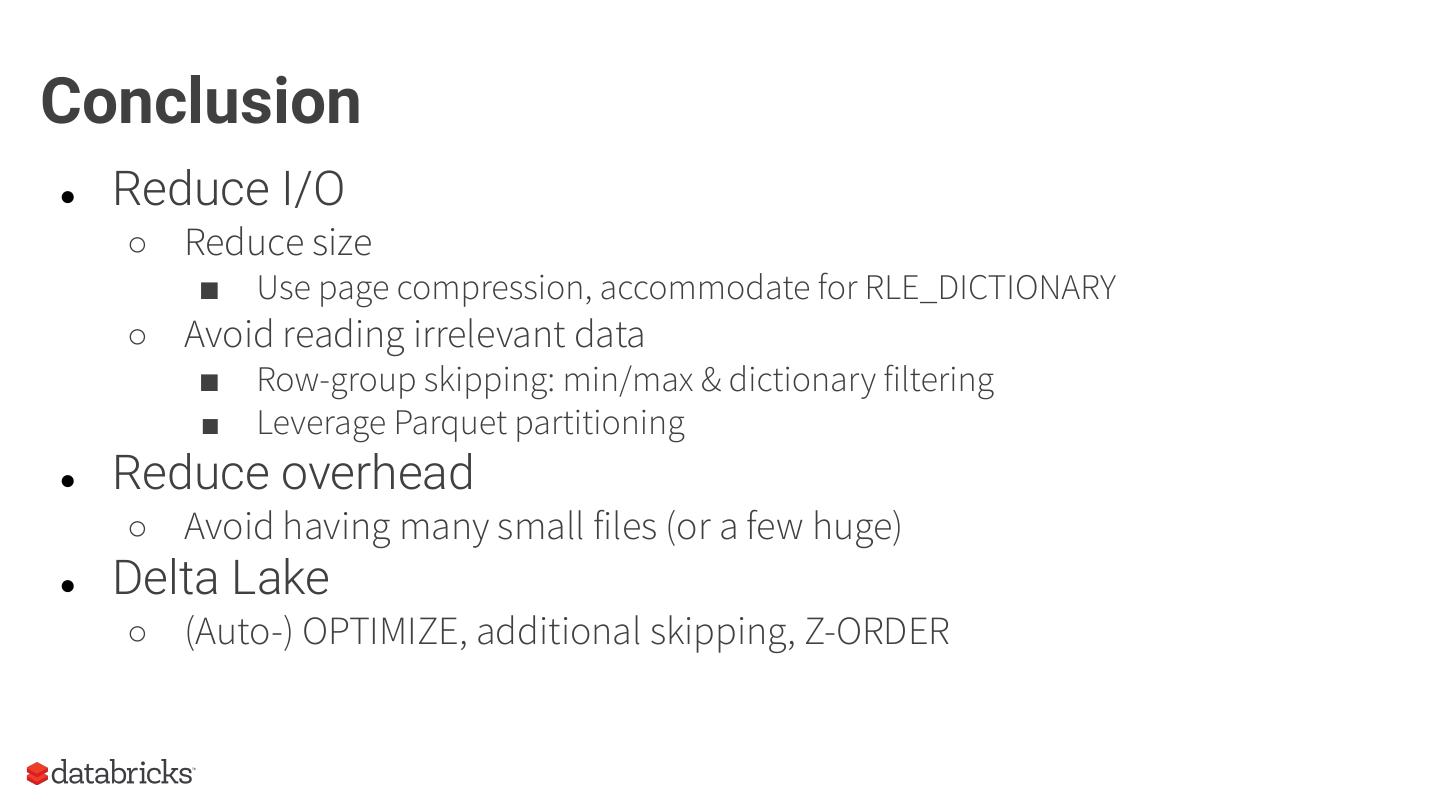- 快召唤伙伴们来围观吧
- 微博 QQ QQ空间 贴吧
- 视频嵌入链接 文档嵌入链接
- <iframe src="https://www.slidestalk.com/Spark/TheParquetFormatandPerformanceOptimizationOpportunities?embed&video" frame border="0" width="640" height="360" scrolling="no" allowfullscreen="true">复制
- 微信扫一扫分享


The Parquet Format and Performance Optimization Opportunities
The Parquet format is one of the most widely used columnar storage formats in the Spark ecosystem. Given that I/O is expensive and that the storage layer is the entry point for any query execution, understanding the intricacies of your storage format is important for optimizing your workloads.
As an introduction, we will provide context around the format, covering the basics of structured data formats and the underlying physical data storage model alternatives (row-wise, columnar and hybrid). Given this context, we will dive deeper into specifics of the Parquet format: representation on disk, physical data organization (row-groups, column-chunks and pages) and encoding schemes. Now equipped with sufficient background knowledge, we will discuss several performance optimization opportunities with respect to the format: dictionary encoding, page compression, predicate pushdown (min/max skipping), dictionary filtering and partitioning schemes. We will learn how to combat the evil that is ‘many small files’, and will discuss the open-source Delta Lake format in relation to this and Parquet in general.
This talk serves both as an approachable refresher on columnar storage as well as a guide on how to leverage the Parquet format for speeding up analytical workloads in Spark using tangible tips and tricks.
展开查看详情
1 .WIFI SSID:Spark+AISummit | Password: UnifiedDataAnalytics
2 .The Parquet Format and Performance Optimization Opportunities Boudewijn Braams Software Engineer - Databricks #UnifiedDataAnalytics #SparkAISummit
3 .Data processing and analytics Data sources Data processing/querying New insights engine Transformed data (ETL) ….
4 .Overview ● Data storage models ● The Parquet format ● Optimization opportunities
5 .Data sources and formats
6 .Physical storage layout models Logical Physical Row-wise Columnar Hybrid
7 .Different workloads ● OLTP ○ Online transaction processing ○ Lots of small operations involving whole rows ● OLAP ○ Online analytical processing ○ Few large operations involving subset of all columns ● Assumption: I/O is expensive (memory, disk, network..)
8 .Row-wise ● Horizontal partitioning ● OLTP ✓, OLAP ✖
9 .Columnar ● Vertical partitioning ● OLTP ✖, OLAP ✓ ○ Free projection pushdown ○ Compression opportunities
10 .Row-wise vs Columnar ?
11 .Hybrid ● Horizontal & vertical partitioning ● Used by Parquet & ORC ● Best of both worlds
12 .Apache Parquet ● Initial effort by Twitter & Cloudera ● Open source storage format ○ Hybrid storage model (PAX) ● Widely used in Spark/Hadoop ecosystem ● One of the primary formats used by Databricks customers
13 .Parquet: files ● On disk usually not a single file ● Logical file is defined by a root directory ○ Root dir contains one or multiple files ./example_parquet_file/ ./example_parquet_file/part-00000-87439b68-7536-44a2-9eaa-1b40a236163d-c000.snappy.parquet ./example_parquet_file/part-00001-ae3c183b-d89d-4005-a3c0-c7df9a8e1f94-c000.snappy.parquet ○ or contains sub-directory structure with files in leaf directories ./example_parquet_file/ ./example_parquet_file/country=Netherlands/ ./example_parquet_file/country=Netherlands/part-00000-...-475b15e2874d.c000.snappy.parquet ./example_parquet_file/country=Netherlands/part-00001-...-c7df9a8e1f94.c000.snappy.parquet
14 .Parquet: data organization ● Data organization ○ Row-groups (default 128MB) ○ Column chunks ○ Pages (default 1MB) ■ Metadata ● Min ● Max ● Count ■ Rep/def levels ■ Encoded values
15 .Parquet: encoding schemes ● PLAIN ○ Fixed-width: back-to-back ○ Non fixed-width: length prefixed ● RLE_DICTIONARY ○ Run-length encoding + bit-packing + dictionary compression ○ Assumes duplicate and repeated values
16 .Parquet: encoding schemes ● RLE_DICTIONARY
17 .Optimization: dictionary encoding ● Smaller files means less I/O ● Note: single dictionary per column chunk, size limit Dictionary too big? Automatic fallback to PLAIN...
18 .Optimization: dictionary encoding ● Increase max dictionary size parquet.dictionary.page.size ● Decrease row-group size parquet.block.size
19 .Optimization: dictionary encoding ● Inspect Parquet files using parquet-tools
20 .Optimization: page compression ● Compression of entire pages ○ Compression schemes (snappy, gzip, lzo…) spark.sql.parquet.compression.codec ○ Decompression speed vs I/O savings trade-off
21 .Optimization: predicate pushdown SELECT * FROM table WHERE x > 5 Row-group 0: x: [min: 0, max: 9] Row-group 1: x: [min: 3, max: 7] Row-group 2: x: [min: 1, max: 4] … ● Leverage min/max statistics spark.sql.parquet.filterPushdown
22 .Optimization: predicate pushdown ● Doesn’t work well on unsorted data ○ Large value range within row-group, low min, high max ○ What to do? Pre-sort data on predicate columns ● Use typed predicates ○ Match predicate and column type, don’t rely on casting/conversions ○ Example: use actual longs in predicate instead of ints for long columns
23 .Optimization: predicate pushdown SELECT * FROM table WHERE x = 5 Row-group 0: x: [min: 0, max: 9] Row-group 1: x: [min: 3, max: 7] Row-group 2: x: [min: 1, max: 4] … ● Dictionary filtering! parquet.filter.dictionary.enabled
24 .Optimization: partitioning ● Embed predicates in directory structure df.write.partitionBy(“date”).parquet(...) ./example_parquet_file/date=2019-10-15/... ./example_parquet_file/date=2019-10-16/... part-00000-...-475b15e2874d.c000.snappy.parquet ./example_parquet_file/date=2019-10-17/ …
25 .Optimization: avoid many small files ● For every file ○ Set up internal data structures ○ Instantiate reader objects ○ Fetch file ○ Parse Parquet metadata
26 .Optimization: avoid many small files ● Manual compaction df.repartition(numPartitions).write.parquet(...) or df.coalesce(numPartitions).write.parquet(...) ● Watch out for incremental workload output!
27 .Optimization: avoid few huge files ● Also avoid having huge files! ● SELECT count(*) on 250GB dataset ○ 250 partitions (~1GB each) ■ 5 mins ○ 1 huge partition (250GB) ■ 1 hour ● Footer processing not optimized for speed...
28 .Optimization: avoid many small files ● Manual repartitioning ○ Can we automate this optimization? ○ What about concurrent access? ● We need isolation of operations (i.e. ACID transactions) ● Is there anything for Spark and Parquet that we can use?
29 .Optimization: Delta Lake ● Open-source storage layer on top of Parquet in Spark ○ ACID transactions ○ Time travel (versioning via WAL) ○ ... ● Automated repartitioning (Databricks) ○ (Auto-) OPTIMIZE ○ Additional file-level skipping stats ■ Metadata stored in Parquet format, scalable ○ Z-ORDER clustering











